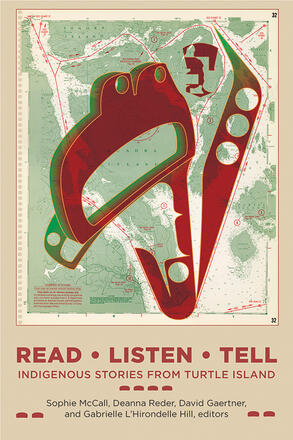
Read, Listen, Tell
Indigenous Stories from Turtle Island
Description
“Don’t say in the years to come that you would have lived your life differently if only you had heard this story. You’ve heard it now. ” —Thomas King, in this volume
Read, Listen, Tell brings together an extraordinary range of Indigenous stories from across Turtle Island (North America). From short fiction to as-told-to narratives, from illustrated stories to personal essays, these stories celebrate the strength of heritage and the liveliness of innovation. Ranging in tone from humorous to defiant to triumphant, the stories explore core concepts in Indigenous literary expression, such as the relations between land, language, and community, the variety of narrative forms, and the continuities between oral and written forms of expression. Rich in insight and bold in execution, the stories proclaim the diversity, vitality, and depth of Indigenous writing.
Building on two decades of scholarly work to centre Indigenous knowledges and perspectives, the book transforms literary method while respecting and honouring Indigenous histories and peoples of these lands. It includes stories by acclaimed writers like Thomas King, Sherman Alexie, Paula Gunn Allen, and Eden Robinson, a new generation of emergent writers, and writers and storytellers who have often been excluded from the canon, such as French- and Spanish-language Indigenous authors, Indigenous authors from Mexico, Chicana/o authors, Indigenous-language authors, works in translation, and “lost“ or underappreciated texts.
In a place and time when Indigenous people often have to contend with representations that marginalize or devalue their intellectual and cultural heritage, this collection is a testament to Indigenous resilience and creativity. It shows that the ways in which we read, listen, and tell play key roles in how we establish relationships with one another, and how we might share knowledges across cultures, languages, and social spaces.
Reviews
Read, Listen, Tell collects a brilliant and vast array of indigenous short fiction, bolstered by insightful critical essays that prioritize indigenous voices, culture, and methodologies. , Clarissa Goldsmith, Foreword Reviews, 2017 July 29
- Clarissa Goldsmith, Foreword Reviews, 2017 July 29